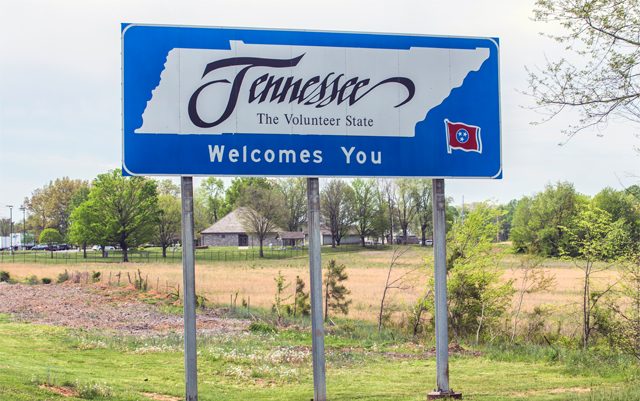On February 12, 2018, police raided – and then proceeded to padlock – 23 businesses in the towns of Murfreesboro, LaVergne, and Smyrna, Tennessee. They also indicted 21 people in the investigation that law enforcement officials named “Operation Candy Crush.”
After the raids, the authorities held a press conference to inform the public that they were responding to a tip they received about the selling of cannabis gummies and vapes. As a result, the stores were shut down, warrants were issued and all CBD products in the stores were confiscated in order to be tested for cannabinoids.
To gain some perspective on how businesses were reacting to the raids, I went to Magical Vapor’s Nashville location to meet with the store’s manager, James Kennedy, and district manager Matt Herpel to discuss the raids, their knowledge of hemp laws and their reaction to how law enforcement handled this operation.
“What’s upsetting is the fact that hemp is legal in TN,” explained Kennedy. And he’s right. The Farm Act of 2014 allows every state in the United States the opportunity to develop their own hemp pilot program. Tennessee’s Department of Agriculture created their hemp pilot program in 2014. In May 2017, Tennessee’s Governor Haslem signed HB1164 into law. The new laws defined by the bill include the definitions and the parameters of legal hemp in the state. There are separate definitions for marijuana and industrial hemp and laws that require providing test results to prove there is less than .3% THC in the product. Law enforcement apparently didn’t get the memo.
Fortunately, this Magical Vapors location wasn’t among the stores that was raided, however, they were affected when their Murfreesboro and Smyrna locations were shut down. “We had to double up on hours, that way the staff at our closed locations could still pay their bills,” James Kennedy explained. “Also, we had to take all of our CBD products off the shelves, and that really sucks,” he added.
During our conversation, the managers of Magical Vapors took pride in their knowledge of TN’s hemp laws and made it known that they were less than thrilled about the whole situation. “We make sure to have the test results for all the CBD products on our shelves.” stated Herpel. “Our staff handed the officers test results and it didn’t matter. They still shut down two of our locations.”
Smyrna, TN‘s police chief, Kevin Arnold, revealed his lack of knowledge on the difference between marijuana and hemp during the press conference following the raids. A local reporter asked the police chief what hemp is used for, and his response was: “It’s used to get high.”
The reporter explained that CBD doesn’t contain THC to get high with, to which the chief then followed up with, “Why are they buying it?” The hemp-educated reporter proceeded to inform him of a few uses. Despite CBD being legal to sell in Tennessee, stores that were raided remained closed until a local judge ruled in favor of the businesses being allowed to reopen their doors on February 19th.
On February 28, 2018, the Tennessee Bureau of Investigations (TBI) dropped all the charges associated with the raids. The test results came back and as expected, the confiscated CBD products were in compliance with Tennessee hemp laws.
This month-long fiasco has painted the state in an unflattering light. All the hard work Tennesseans have done to develop a hemp industry in the state are going unnoticed because of Operation Candy Crush which, in my opinion, was a waste of taxpayer money.
It also provided people with a great snapshot of the type of department that Sheriff Michael Fitzhugh is leading to protect and serve Rutherford County residents. Legal stores had to close because of a tip that wasn’t thoroughly researched before any actions were taken.
Hopefully, old school Southern views on cannabis are a thing of the past for elected officials in Tennessee. The position of sheriff requires being voted into office, and let’s not forget 2018 is an election year. The residents of Rutherford county can utilize their right to vote to teach their sheriff’s department a lesson by electing someone else to fill the position of sheriff. Hemp is here to stay in Tennessee, and people whose livelihood is to protect and serve the community should know the state hemp laws. If they don’t, it’s time for our voices to be heard at the polls this November.






